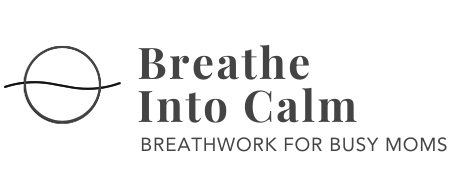
What Are the Key Signs of Stress Affecting Mental Health?
Stress can feel like that uninvited guest who just won’t leave. It’s sneaky, creeping into our lives and impacting our mental health in ways we might not even realize at first. Learning and recognizing what are the key signs of stress affecting mental health is crucial for maintaining emotional well-being. It’s like noticing a small leak before it turns into a flood.
When stress starts to mess with your mental health, it doesn’t hold back. It can cause everything from feeling constantly on edge to outright exhaustion. Nailing down these signs early is your best bet to tackle them head-on.
Common symptoms that pop up include:
Fatigue: That bone-deep tiredness that just doesn’t budge.
Irritability: Snapping at folks you normally get along with.
Trouble Sleeping: Tossing and turning till dawn.
These aren’t just minor annoyances; they’re signals that something needs attention. Understanding stress and keeping an eye out for what are the key signs of stress affecting mental health can make all the difference in navigating life’s ups and downs.
Table of Contents
ToggleAffiliate disclosure: some of the links on this site are affiliate links, meaning at no additional cost to you, I will be earning a commission if you click through and purchase.
Share this post:
Understanding Stress and Its Impact on Mental Health
Stress is your body’s way of responding to any kind of demand or threat. When you feel threatened, your nervous system releases a flood of stress hormones like adrenaline and cortisol, preparing your body for emergency action. This response is known as the “fight or flight” response.
The “funny” thing is though, that this response doesn’t differentiate between real-life and imagined threats. While it evolved as a way for our ancestors to receive a burst of energy and strength, giving them a much needed edge to either fight the animal attacking them or run away from it, most of the attacks our nervous system is protecting us from today, are imaginary.
When dealing with everyday stressors like work deadlines, traffic jams or a demanding mother in law, most of us are in no real physical danger. What we are doing when stressing; imagining all sorts of situations and disasters, is continuously preparing ourselves to deal with physical emergencies that never happen.
How Stress Affects Mental Health
The effects of stress on health, especially mental health, can be significant. Chronic stress can disrupt nearly every system in your body:
It can suppress your immune system.
It can upset your digestive and reproductive systems.
It can increase the risk of heart attack and stroke.
It can speed up the aging process.
But perhaps most concerning is its impact on psychological well-being.
People under constant stress may experience emotional well-being issues such as anxiety, depression, and irritability. You might find yourself getting easily annoyed or having mood swings that feel out of character. It’s as if your mind is constantly racing, and you’re struggling to keep up.
The Connection Between Prolonged Stress and Mental Health Conditions
It’s not just about feeling stressed occasionally; prolonged stress can lead to more serious mental health conditions. Think of it this way: carrying a heavy backpack every day will eventually weigh you down both physically and mentally. Similarly, ongoing stress can contribute to conditions like chronic anxiety disorders or depression.
In my own life, I remember a time when work and the home environment was so hectic that I couldn’t shake off this nagging feeling of worry. The feeling of always being late for something. Soon enough, sleepless nights turned into days where I couldn’t focus on anything else but my racing thoughts. That’s when I realized stress wasn’t just an annoyance; it was significantly impacting my mental health.
Understanding how stress affects us is crucial because it allows us to take action before it escalates into something more severe. By recognizing these connections, we gain the knowledge needed to protect our psychological well-being amidst life’s chaos.
So, What Are the Key Signs of Stress Affecting Mental Health?
1. Fatigue
Fatigue isn’t just about feeling a little tired after a long day. It’s that deep, bone-weary exhaustion that seems to linger no matter how much sleep you get or how many cups of coffee you chug. You know, like when you’ve had a hectic week at work, juggling deadlines and meetings, and by Friday, you’re not just tired, you’re utterly spent.
This kind of fatigue can be a major sign that stress is taking a toll on your mental health. It impacts your daily responsibilities in ways that can sneak up on you. Suddenly, tasks that were once routine feel monumental. You might find yourself staring blankly at your computer screen at work, struggling to focus on even the simplest of emails. Or maybe it’s that mountain of laundry at home that feels like climbing Everest.
Impact on Motivation and Productivity
Fatigue from stress doesn’t just zap your energy; it can also suck the motivation right out of you. I remember this one time during a particularly stressful project – everything felt like it was piling up all at once. I found myself procrastinating more than usual, avoiding tasks because they seemed too overwhelming to tackle in my exhausted state.
When you’re chronically fatigued due to stress, your productivity takes a nosedive. You might start missing deadlines, or if you’re anything like me, you begin second-guessing every decision because your brain is too fogged to think straight. It’s frustrating and can spiral into a vicious cycle where stress leads to fatigue, which then increases stress due to falling behind on responsibilities.
Recognizing this type of fatigue as one of the key signs that stress is affecting your mental health is crucial. It’s not just about being physically tired — it’s about understanding that this exhaustion is telling you something important about the pressure you’re under and finding ways to lighten the load before it becomes overwhelming.
2. Irritability
Ever snapped at someone without really knowing why? Stress has this sneaky way of messing with our mood, and irritability is one of those key signs that stress is affecting your mental health. When stress levels ramp up, patience can wear thin faster than an ice cube on a hot day. It’s like every little thing becomes the biggest deal ever, and you find yourself getting irritated over stuff that you’d normally shrug off.
This increased irritability from stress isn’t just annoying for you; it can seriously strain your relationships. Imagine having a short fuse at work—snapping at colleagues or being snippy during meetings. That kind of vibe can lead to awkwardness or even conflict, making professional interactions a bit of a minefield. On the home front, those closest to you might start walking on eggshells, unsure of what might set off your grumpy side next.
Recognizing these signs of stress is crucial because identifying symptoms of stress-related issues early can help prevent damage to both personal and professional relationships. Catching it before it spirals out of control means you’ve got a better shot at managing the tension and protecting your bonds with others.
3. Trouble Sleeping
Have you ever found yourself lying awake in bed, unable to sleep? This is a common sign that stress may be affecting your sleep. When stress builds up, it often leads to sleep problems—essentially, your mind just won’t relax. You know how it goes: racing thoughts, worrying about what you need to do tomorrow, or replaying conversations from earlier in the day. It’s like your brain has its own late-night talk show.
Why Recognizing Stress Signs Matters
It’s important to recognize these signs of stress because not getting enough sleep doesn’t just make you tired; it can lead to mental health issues like anxiety or depression. Insomnia caused by stress isn’t just tossing and turning; it can result in a constant feeling of exhaustion that’s difficult to shake off. I remember a time when I could only manage a couple of hours of sleep each night—my productivity took a nosedive and I was basically living on coffee.
The Impact of Sleep Issues on Productivity
Sleep problems caused by stress aren’t just about feeling sluggish during the day; they also result in reduced productivity due to stress and an inability to function normally. If you find yourself agreeing with this (or even falling asleep), it’s important to take this seriously. Early identification of stress-related symptoms can greatly help in restoring your sleep—and mental health.
4. Feeling Sad and Hopeless About the Future
Have you ever felt a heavy sadness lingering around, like an unwanted guest? That’s one of the main signs that stress is impacting your mental health. When stress sticks around for too long, it can make everything seem dark and hopeless. It’s similar to being trapped in a fog where you can’t see any light ahead.
Stress has a sneaky way of creeping into your mind, making it difficult to find happiness in things you usually enjoy. You might start doubting yourself or your future, feeling like you’re stuck in a never-ending cycle with no escape. This emotional disconnection isn’t just about feeling sad; it’s about feeling completely drained and unable to feel anything.
These ongoing feelings of sadness caused by stress can disrupt your daily life—stealing your energy, crushing your motivation, and leaving you constantly tired. It’s important to recognize these signs early because they can lead to more serious mental health symptoms if left untreated. It’s not just about having a bad day; it’s about spotting signs of stress-related problems before they grow into something larger.
The Importance of Seeking Help for Stress-Related Mental Health Issues
It’s no secret that stress can have a negative impact on your mental health. So, when you start noticing signs like fatigue or constant exhaustion, it might be time to consider getting professional help to manage the mental health effects caused by excessive pressure. It’s not just something nice to have; it’s essential.
Getting the right support can make all the difference. Here are some professionals who can help:
Psychologists: They’re trained to understand how stress affects your mind and behavior. They offer strategies and coping mechanisms tailored to you.
Therapists: Whether it’s cognitive behavioral therapy or another approach, they can help untangle the web of stress-related issues.
Counselors: Sometimes, just having someone to talk to makes a world of difference. They provide guidance and emotional support.
Don’t wait until things get really bad. Reaching out might feel like a big step, but it’s like finding a flashlight in a dark tunnel—you’ll wonder why you didn’t do it sooner!
Relief Methods That Can Support Your Mental Well-Being During Stressful Times
1. Breathing Exercises
Ever feel like stress just hits you out of nowhere? Like you’re cruising along and suddenly, bam—your heart’s racing, your mind’s a mess, and everything feels too much? Yeah, been there. Breathing exercises might sound like something out of a yoga class, but they’re honestly game-changers for getting that sense of calm back when anxiety’s got you in a chokehold.
How Breathing Exercises Work
Breathing exercises are all about tapping into your body’s natural relaxation response. When you’re stressed, your body goes into fight-or-flight mode—think of it as your internal alarm system going off at full blast. But focusing on your breath can flip the switch on that alarm. It signals to your brain that hey, it’s cool to relax now. It’s kinda like telling your body to chill out and stop acting like it’s running from a saber-toothed tiger.
Simple Breathing Techniques to Try
Here’s a couple of breathing techniques that might help when you’re feeling on edge:
4-7-8 Breathing: This one’s a classic. Start by inhaling through your nose for four counts. Hold that breath for seven counts (don’t worry if you can’t do this perfectly at first—practice makes it easier). Then exhale slowly through your mouth for eight counts. Repeat this cycle about four times. It’s like hitting the reset button on your nervous system. Click here for a more in-depth explanation.
Box Breathing: Picture drawing a box with your breath. Inhale for four counts, hold the breath as you “draw” the top of the box for another four, exhale down the other side for four counts, and hold again for four counts at the bottom before starting over. It’s super simple but can really help center you when things feel chaotic. For more info, click here.
Diaphragmatic Breathing: Also known as belly breathing. Place one hand on your chest and the other on your belly. Take a deep breath through your nose, letting your diaphragm (not your chest) inflate with air—imagine filling up a balloon in your stomach. Exhale slowly through pursed lips and feel the tension melt away. You can read more about this technique here.
Next time stress comes knocking, give these techniques a whirl! They’re some of the easiest stress relief methods out there—you can do them anywhere, anytime, no special equipment needed.
2. Natural Healing Approaches

Have you ever tried yoga or meditation to stay calm during stressful times? These holistic methods are refreshing and can help relieve anxiety, keeping your mind stable in tough situations. Instead of taking medication, these natural healing techniques encourage you to pause, take deep breaths, and reconnect with yourself.
Yoga: Moving with Purpose
Yoga is more than just bending your body into strange positions; it’s about bringing together your mind and body. When stress hits hard, yoga’s combination of movement, controlled breathing, and meditation helps release tension stored in the muscles. It’s like hitting the reset button on your day.
Meditation: Finding Stillness
Sitting still might sound easy until you actually try it! But once you get past the initial awkwardness, meditation becomes a powerful tool for relaxation. It allows you to focus on the present moment, reducing stress and anxiety by giving your mind a much-needed break from constant worry.
The beauty of these practices lies in their versatility—there’s no one-size-fits-all. Whether it’s a quick five-minute breathing session or a full-on yoga class, finding the right method for individual needs is crucial for promoting overall wellness alongside traditional treatment options.
3. Personal Growth Programs
If you want to take charge of your stressful situation, but not quite at a place where you feel the need for professional mental health practitioners, you might consider following a personal growth program that allows you to work at your own pace while developing essential life skills. These structured programs often provide:
Self-paced learning opportunities that fit around your schedule
Evidence-based techniques for stress management
Interactive exercises that promote self-discovery
Digital tools and resources accessible from anywhere
Many programs offer a blend of:
Mindfulness training to help ground you in the present
Emotional intelligence development for better stress response
Goal-setting frameworks to create achievable milestones
Time management strategies to reduce daily pressures
These programs can serve as valuable stepping stones, helping you build resilience and develop coping mechanisms while maintaining autonomy over your wellness journey.
Mindvalley is a self-improvement platform that helps you grow in all areas of life, including mental wellness, physical health, spirituality, business, work, and personal connections. Their online lessons, called ‘Quests’, are often taught by well-known experts and public figures.
While they offer many programs to help manage stress, I particularly love “Everyday Bliss” with famous TV host Paul McKenna. This course teaches simple, effective stress-relief methods you can pull out of your sleeve anytime, anywhere to feel calmer and more relaxed naturally.
Practical Tips for Managing Stress Effectively in Daily Life
Finding ways to cope with everyday pressures while safeguarding psychological resilience is like trying to walk a tightrope. It can be tricky, but with the right balance, it’s totally doable. Here are some strategies that I’ve found super helpful:
Prioritize Self-Care: Make sure you’re taking time out for yourself. Whether it’s a hot bath, reading a book, or just chilling on the couch with your favorite show—self-care is key.
Set Boundaries: Learn to say no sometimes. It’s okay not to take on everything at once. Protecting your time and energy makes a huge difference.
Stay Active: Physical activity can be a big stress buster. A quick walk around the block or even some stretching can help clear your mind and release some of those pent up stress chemicals.
Stay Connected: Chat with friends or family when things feel overwhelming. Sometimes just talking it out can relieve stress.
Mindfulness Practices: Try incorporating mindfulness techniques like journaling, practicing gratitude or following a personal growth program daily.
These tips have been lifesavers during those crazy stressful times when I felt like I was juggling too many balls in the air. Remember, stress is sneaky—it creeps up slowly, so keeping these strategies handy helps keep it at bay!
Conclusion: Prioritizing Your Mental Health Amidst Life’s Challenges
When life throws challenges our way—and trust me, it loves doing that—keeping an eye on what are the key signs of stress affecting mental health is crucial. Recognizing those major clues of stress, like fatigue and constant exhaustion, helps you get ahead of the game. It’s surprising how sometimes I don’t even realize I’m stressed until I’m snapping at my own reflection for no reason!
But hey, taking proactive steps doesn’t have to be a massive ordeal. A few minutes of deep breathing or a quick walk can work wonders. Small changes can lead to big differences in how we handle stress day-to-day. And remember, it’s totally okay to seek help when things get heavy; therapists aren’t just for those “big” issues.
So, let’s keep our mental well-being front and center because, at the end of the day, you’re worth it. And who knows? Maybe one day we’ll actually enjoy this rollercoaster called life without needing a nap afterward!

Leave a reply
Got any questions or want to share your favorite stress busting activities? Let me know in the comments below!








7 Comments
Kathy
30/11/2024 at 6:58 PM
I think this article is so important! Many women have these symptoms and gall it up to stress but don’t realize the toll it takes over a long period of time. You’ve listed some simple yet effective ways to counteract the stress response. Great job!
Alana
30/11/2024 at 7:02 PM
Great tips and advice, thanks for sharing. It’s so easy to forget to look after our mental health.
breatheintocalm.com
03/12/2024 at 5:11 AM
You are so right Alana. Life is so hectic and demanding sometimes, and we are generally not good enough at stopping, taking a breath and just sensing what it is we need. But simple steps can go a long way to feeling healthier and happier in our lives.
breatheintocalm.com
03/12/2024 at 5:18 AM
Thank you, Kathy! We all experience stress, but so many of us don’t even recognise it as stress. It seems like this is just what life is, until it smacks us in the face with health issues, either physically or mentally. Then we listen. I hope to bring some awareness around these issues so hopefully more people will start listening to their bodies before they are forced to do so.
Ms. Jackie
08/12/2024 at 10:13 AM
Great tips for managing stress! I love the organization of this post. Well done.
breatheintocalm.com
10/12/2024 at 6:36 AM
So glad you found these helpful. Living with stress does not mean it cannot change! 🙂
Tools For Creators
11/04/2025 at 6:09 PM
I am really inspired together with your writing skills as well as with the layout in your blog. Is this a paid subject or did you modify it yourself? Anyway keep up the excellent high quality writing, it’s uncommon to look a great blog like this one today. !